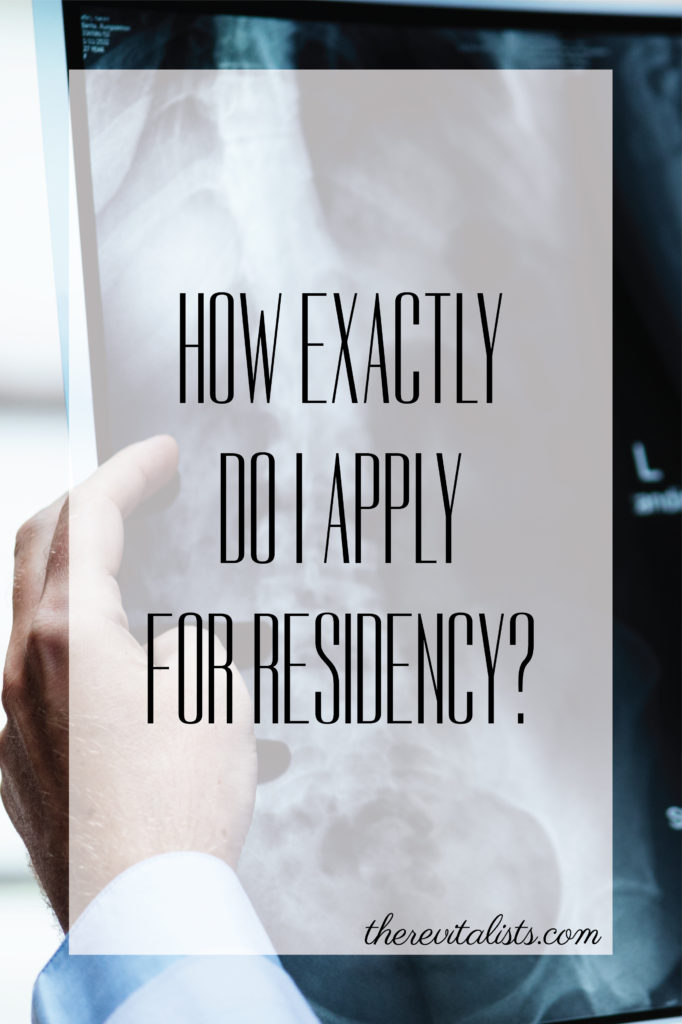Medical school builds up to one thing: residency [for the most part]. This isn’t the case for everyone, but it is for many medical students. Residency is the in-depth clinical training in the process of becoming a licensed physician. It’s the ‘next-step’ in becoming a fully functioning physician. If you’re starting medical school, its important to think about what comes next and how you apply for residency.
In celebration of Match Day this past Friday, I thought I’d give a little information on what exactly The Match is and how it works [even though this is a LONG time away for me].
How do I apply for residency?
The National Residency Match Program [NRMP], better known as The Match runs both the Main Residency Match [to apply for residency] and the Specialties Matching Service [to apply for fellowships]. It requires applications to be submitted in the Electronic Residency Application Service [ERAS] run by the Association of American Medical Colleges (AAMC).
Whew, that was a lot of acronyms. Medicine is full of them.
The Match is part of the process for 4th year medical students [or someone otherwise qualified] to apply for residency programs in their chosen specialties. In a normal application process, you apply to multiple programs and wait to hear back on which ones you are accepted into. Then, you make a decision on which one to commit to. The Match is different.
How does The Match work?
The Match is based on a Noble Prize winning algorithm that matches applicants to residency programs based on each one’s preferences. The process begins with applying to and interviewing at residency programs in your chosen specialty through ERAS. Then, as an applicant, you create a list of the programs you would want to join as a resident from most preferred to least preferred. Programs also rank applicants they interviewed from most to least preferred.
Once the deadline to certify your rank list passes, the algorithm runs. It takes into account both your preferences and program preferences to make the best possible result. To see more clearly how The Match algorithm works, watch this video on the NRMP website. I think this video does an amazing job at making it simple to understand how the algorithm works. Much easier than how I could ever explain it [I’ve tried].
When do I find out the results of The Match?
Everyone who participates in the Main Residency Match to apply for residency finds out the results at the same time. This is Match Week. Match Week is an exciting time for 4th year students nationwide. Medical schools and the medical students plan events to celebrate. This year the 4th years at my school planned events out all week, open to all students. There’s also the Match Day ceremony set up by the administration [and everyone else has to avoid the area at all costs].
Match Week occurs every year in the third week of March. It starts off on Monday morning when you get an email stating whether or not you matched. This is sent out to everyone at the same time (11:00AM ET). This email only states if you did or did not match, not where you matched.
Match Week ends on Friday, when the Match Day ceremonies are held. On Friday at 12:00PM ET, everyone in their 4th year of medical school who matched opens an envelope containing the location of their residency program.
What happens if I don’t match?
If you find out on the Monday of Match Week that you did not match (or partially matched) to any of the programs on your match list, you will be invited to participate in the Supplemental Offer and Acceptance Program (SOAP) if you’re eligible. Don’t be discouraged! There are likely still unfilled program slots available and this is the basis of SOAP.
SOAP is basically another round of applications and interviews. Although way more condensed! If you find out you’re unmatched/partially unmatched, you’ll work with your dean’s office to apply to SOAP programs immediately. As soon as 3:00PM ET the same day, programs will start contacting SOAP applicants to conduct phone interviews.
Not all programs participate in SOAP, but many do. In this process, residency programs create preference lists, but applicants don’t. There are 3 rounds where offers are extended and then either accepted or rejected. If at the end of round 3 on Thursday of Match Week you are still unmatched, you will be able to directly contact individual programs on the updated unfilled position list, including those that didn’t participate in SOAP.





